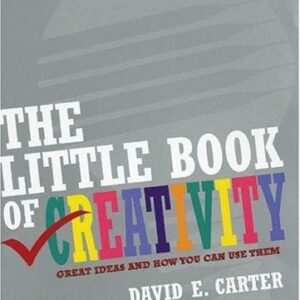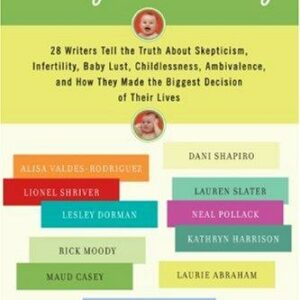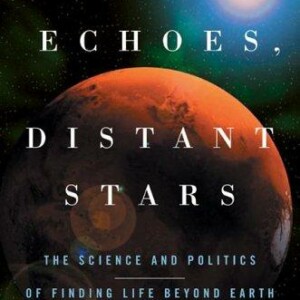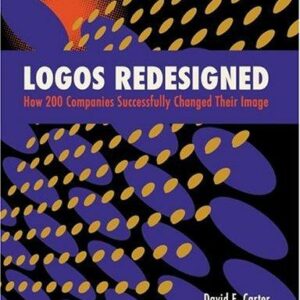Galileo’s Error
$16.95
| Title | Range | Discount |
|---|---|---|
| Trade Discount | 5 + | 25% |
- Description
- Additional information
Description
From a leading philosopher of the mind comes this lucid, provocative argument that offers a radically new picture of human consciousness—panpsychism.
Understanding how brains produce consciousness is one of the great scientific challenges of our age. Some philosophers argue that consciousness is something “extra,” beyond the physical workings of the brain. Others think that if we persist in our standard scientific methods, our questions about consciousness will eventually be answered. And some even suggest that the mystery is so deep, it will never be solved. Decades have been spent trying to explain consciousness from within our current scientific paradigm, but little progress has been made.
Now, Philip Goff offers an exciting alternative that could pave the way forward. Rooted in an analysis of the philosophical underpinnings of modern science and based on the early twentieth-century work of Arthur Eddington and Bertrand Russell, Goff makes the case for panpsychism, a theory which posits that consciousness is not confined to biological entities but is a fundamental feature of all physical matter—from subatomic particles to the human brain. In Galileo’s Error, he has provided the first step on a new path to the final theory of human consciousness.“In Galileo’s Error, Philip Goff argues for a new approach to the scientific study of consciousness. He offers an accessible and compelling analysis of why our felt experience continues to elude scientific explanation and why the theories that describe consciousness as a fundamental feature of matter have been neglected—and why they now deserve serious consideration. This is a must-read for anyone interested in the future of consciousness studies.”
—Annaka Harris, best-selling author of Conscious: A Brief Guide to the Fundamental Mystery of the Mind
“This is one of the clearest accounts I’ve ever read about the mystery of consciousness, and the way in which one theory about it, panpsychism, does a great deal to explain how it occurs and what it is. Why shouldn’t consciousness be a normal property of matter, like mass or electrical charge? This idea has the glorious simplicity of our first realization that the earth goes around the sun, and not vice versa. Suddenly the universe appears in a new and much more revealing perspective. Philip Goff’s book is altogether a splendid introduction to this fascinating idea.”
—Philip Pullman, author of the “His Dark Materials” series
“Philip Goff’s new book, Galileo’s Error, introduces the public to a revolutionary approach to one of the most stubborn of mysteries: how does the brain, with its chemical and electrical processes, give rise to a mind, whose thoughts, emotions, colors and tones we apprehend directly? In this provocative, brave and clearly written book, Goff makes a compelling case for an initially absurd thesis: that the colors we perceive are instances of universal qualities hidden within all material processes.”
—Lee Smolin, author of Einstein’s Unfinished Revolution and founding member of the Perimeter Institute for Theoretical Physics
“Galileo’s Error is a manifesto for a new generation of philosophers who think we need to revise our view of the physical world to accommodate consciousness. Galileo took the mind out of matter, which was good for the science of matter but not so good for the science of the mind. Philip Goff thinks that to explain consciousness, we have to put the mind back into matter. His ideas are radical, but his arguments are rigorous and the book is a pleasure to read. I recommend it to anyone who wants to come to grips with mystery of consciousness.”
—David Chalmers, author of The Conscious Mind and Professor of Philosophy at New York University
“Goff’s elegant book offers a thought-provoking, inspiring picture of the nature of mind. His spirited defense of panpsychism moves well beyond the usual academic discussions, mulling over our place in the larger universe.”
—Susan Schneider, author of Artificial You: AI and the Future of Your Mind
“Galileo’s Error is a tour de force. Goff defends his distinctive view of consciousness with verve, wit and authority, and for good measure adds an even-handed account of alternative views and a graphic introduction to the surrounding science. It is hard to imagine a better introduction to current debates about consciousness.”
—David Papineau, author of Thinking about Consciousness and Professor of Philosophy of Science at King’s College London
“Galileo’s Error is an exciting and provocative book, which argues for the revolutionary view that all matter is conscious. Goff writes with clarity and passion, and whether you agree or disagree with his conclusions, you will find his book enjoyable, engaging, and deeply thought-provoking.”
—Keith Frankish, editor of Illusionism: as a Theory of Consciousness and Honorary Reader in Philosophy, University of Sheffield
“Philip Goff has written an extraordinarily accessible and entertaining book introducing and defending an increasingly popular, if on the face of it outlandish, claim: that consciousness is everywhere. Matter doesn’t somehow magically become conscious depending on how it’s arranged; rather the consciousness is there from the start. There’s no better introduction to this fascinating subject.”
—Stephen Law, author of The Great Philosophers: The Lives and Ideas of History’s Greatest ThinkersPHILIP GOFF is a philosopher who teaches at Durham University. He is the author of Consciousness and Fundamental Reality and has published more than forty academic papers. His writing has also appeared in many newspapers and magazines, including The Guardian and The Times Literary Supplement, and he has guest-edited an issue of Philosophy Now. He lives in Durham, England.1
How Galileo Created the Problem of Consciousness
As you read this page, you are having a visual experience of black letters against a white background. You can probably hear background noises: traffic, distant conversation, or the faint hum of a computer. You may be experiencing strong smells or tastes: the smell of coffee, the taste of mint as you chew a fresh piece of gum. Maybe you feel some emotions: a feeling of excitement, or sadness, or maybe you just feel a bit tired or distracted. If you pay attention, you will notice more subtle kinds of experience: the tactile sensation of the chair against your body, perhaps sensations of itchiness or throbbing in a knee or an arm. These are all forms of conscious experience. They are states that characterize your subjective inner life. These feelings and experiences make up what it’s like to be you.
Consciousness is fundamental to what we are as human beings. This is not to undermine the importance of the body: we are embodied creatures and we relate to one another through and with our bodies. But it is consciousness that defines the identity of the person. Fundamentally we know a person in terms of their feelings and thoughts, and the quirks of their personality. Perhaps one day in the future it will be possible to survive the death of the body by uploading one’s mind onto a computer, making it possible to talk to grandma via email long after her body has rotted in the ground. So long as the conscious mind survives, we feel that the person has survived. In contrast, when the conscious mind has gone, for example, in tragic cases of permanent coma, the living body can seem nothing more than a memorial to the person who once was.
Consciousness is also the source of much that is of value in existence. Without consciousness, the universe would still be just as immense and awe-inspiring. But without a conscious mind to appreciate its majesty, is there really any value in the existence of all that stuff? It is our experiences that make life worth living: exhilarating pleasures, sweeping emotions, subtle thoughts. Without consciousness none of these things is possible.
As well as being the ground of our identity and a source of great value, consciousness is the only thing we know for certain is real. I can’t know for certain that there really is a world out there. Perhaps I’m actually in the Matrix, naked and hairless, encapsulated in a vat of chemicals being fed information about a nonexistent virtual world by computers that are using me as an energy source. I might not even have a body: perhaps the computers disposed of my body long ago and now all that remains of me is a brain wired up to a computer. Or perhaps I am myself a computer, created by humans to think that I am a living human being.
But there is one thing I know for certain: I exist as a conscious being. If I am in the Matrix, the computers might be deceiving me about all kinds of things, but they can’t be making me think I’m conscious when I’m not. Perhaps my visual experience of the room around me doesn’t correspond to anything real, but I know I am having a visual experience nonetheless. The only thing I have direct access to are my own experiences.
Everything else is known indirectly, believed on the basis of what I experience. All knowledge of reality is mediated through consciousness.
This was the insight of the father of modern philosophy René Descartes (1596–1650), summed up with his famous line “Cogito ergo sum” or “I think, therefore I am.” This phrasing is potentially misleading. Descartes wasn’t saying that he exists because he thinks. (Hence the following old joke doesn’t really work: Descartes goes into a bar. Barman says, “Want a beer?” Descartes replies “I think not” and disappears.) Descartes’s point is about knowledge: he knows for certain that he thinks—or more broadly that he is a conscious being—and in knowing this he thereby knows that he exists. The certain knowledge of one’s existence as a conscious being was, for Descartes, the starting point of all knowledge.
Nothing is more certain than consciousness, and yet nothing is harder to incorporate into our scientific picture of the world. We now know a great deal about the brain, much of it discovered in the last eighty years. We understand how neurons—the basic cells of the brain—work in terms of their underlying chemistry. We know the function of many regions of the brain, in terms of processing information and negotiating sensory inputs and behavioral outputs. But none of this has shed any light on how the brain produces consciousness.
Some people dismiss this as simply reflecting the fact that the physical science of the brain—neuroscience—has a long way to go. But if explaining consciousness is a work in progress, one might reasonably expect neuroscience to have yielded a partial explanation of consciousness, accounting for some human experiences but leaving trickier cases unexplained. The reality is that, for all its virtues, neuroscience has thus far failed to provide even the beginnings of an explanation.
This is all the more extraordinary when we contrast it with the great progress science has made in explaining other phenomena. The scientific story of water or gasoline explains the observable characteristics of these substances. We get a satisfying account of why, for example, water boils at 100 degrees centigrade or of why gasoline is flammable. Our scientific understanding of genes continues to provide ever greater insight into how certain traits are passed on from generation to generation. Astrophysics is able to explain how stars and planets are formed. In all of these cases we find satisfying explanations. And yet our increased understanding of the electrochemical processes of the brain has failed to yield insight into how those processes give rise to a subjective inner world.
WE’LL GET THERE IN THE END . . .
Physical science has a dismal track record in explaining consciousness. But the track record of physical science in explaining pretty much everything else is impressive. Many scientists and philosophers take this to be good evidence that, in spite of current disappointments, neuroscience will one day crack the mystery of consciousness.
The neuroscientist Anil Seth makes an analogy to life. It used to be thought that life was an inherently mysterious phenomenon, which could be explained only via the postulation of mysterious nonphysical “vital forces.” Few people these days take this view, known as “vitalism,” seriously. According to Seth, this was not because some philosophers solved “the problem of life.” We moved on from the days of vitalism because biochemists, instead of dwelling on the mystery, got on with the job of explaining the properties of living systems—metabolism, homeostasis, reproduction, etc.—in terms of underlying mechanisms, and eventually the sense of mystery dissipated.
Seth urges us to take a similar approach to consciousness. It’s what we might call the “Get out of the armchair and into the lab” approach. Seth recommends that instead of dwelling on why consciousness exists in the first place, we should rather focus on what he calls the “real” problem of consciousness: the challenge of mapping correlations between what goes on in the brain and what is experienced by the person. Seth predicts that, just as in the case of life, the sense of mystery will eventually go away and scientists of the future will wonder what the philosophers were worrying about.
The trouble with picking examples from the history of science is that there are always other examples that prove the opposite point. Seth focuses on the scientific challenge of explaining life as it currently exists. But consider instead the riddle of explaining the historical origins of complex life. Before Darwin, it was a mystery where complex, self-replicating organisms came from. The nineteenth-century philosopher William Paley argued that the only plausible hypothesis was that they were created by an intelligent designer, that is to say, by God. Paley argued for this with the following analogy. Imagine you’re walking along a beach and you come across a watch lying on the ground. It would be crazy to suppose that something so complex had come about by a chance, random process, and so you would naturally assume that somebody had designed it. Similarly, argued Paley, given the great complexity of living organisms, we should suppose that they too were designed rather than that they came about by chance.
You might think at first this case is quite similar to Seth’s. In both cases what was once taken to be the product of mysterious nonphysical interventions in the natural world came to have a scientific explanation. But there is an important difference. As Seth says, the problem of explaining life as it currently exists—the problem which led some in the nineteenth century to postulate nonphysical vital forces—was not solved by some great insight that pointed toward a solution; it just eventually stopped seeming like a real problem in the first place. But the problem of explaining the historical origins of life was solved by just such an insight. Darwin didn’t just say, “Stop wasting time worrying about where life came from and get on with more serious scientific questions”; rather he came up with the principle of natural selection to explain how complex life emerges. Darwin agreed with Paley that the emergence of complex organisms can’t possibly have happened by chance, but rather than appeal to God he postulated the “blind watchmaker”—to use Richard Dawkins’s memorable phrase—of natural selection in order to explain it.
Coming back to the problem of consciousness, it seems that it could go either way. Perhaps Seth is right that as we learn more about the brain we will eventually stop worrying where consciousness came from (although there is no sign of this happening yet). But it could equally be that the “Darwin of consciousness” will come along and solve the problem of consciousness in a satisfying way. In opposition to Seth, I will try to show not only that there is good reason for taking the problem of consciousness seriously, but also that there are already the makings of a theoretical framework that could bring about progress. One of the most vociferous proponents of the “Get out of the armchair and into the lab” approach is the neurophilosopher Patricia Churchland. Imagine, if you can, a fearsome firebrand preacher but for the cause of neuroscience rather than religion, and you’re probably on the right track. Patricia Churchland and her husband, Paul, achieved academic fame in the 1990s for defending a radical position known as “eliminative materialism.” Paul and Patricia argued that we should not be trying to explain the mind but rather rejecting its very existence. Like fairies and magic, science has shown that mental phenomena simply do not exist.
Here’s an analogy. What people used to think of as demon possession we now know to be epilepsy. But we don’t say, “Great, we now have a scientific explanation of demon possession.” Instead, the scientific explanation has displaced the demon possession explanation, proving beyond reasonable doubt that demon possession does not exist (or at least it’s not what’s going on in standard epilepsy cases). Similarly, the Churchlands claimed that our old-fashioned explanations of human behavior in terms of things like “thought,” “desire,” “hope,” “love” were becoming outdated. They looked forward to a day when we would drop such an antiquated vocabulary altogether and talk about human behavior in terms of its real causes: electrochemical processes in the brain. (One can’t help wondering whether the Churchlands’ early courtship involved poetry expressing the strength of their neuronal activations for each other. . . .)
I am very much open to the idea that scientific progress can show that many of our commonsense ways of thinking about the world are wrong. Modern science has revealed to us that objects we think of as solid are in fact mostly empty space, given the immense distances between the nucleus at the center of the atom and the electrons that orbit it. Einstein’s theory of relativity entails that our commonsense notion of absolute time is an illusion. And, as we shall explore in the next chapter, quantum mechanics has undermined many of our commonsense ways of thinking about matter. However, there is a limit to this. One thing that science could never show is that consciousness does not exist.US
Additional information
| Weight | 9.2 oz |
|---|---|
| Dimensions | 0.7600 × 5.1900 × 7.9800 in |
| Imprint | |
| Format | |
| ISBN-13 | |
| ISBN-10 | |
| Author | |
| Audience | |
| BISAC | |
| Subjects | science book, cosmos, critical thinking, science books, science for kids, relativity, destiny, neurology, science gifts, probability, Bertrand Russell, consciousness, science gifts for adults, philosophy books, cognitive neuroscience, neuroscience books, SCI090000, human error, panpsychism, stocking stuffera, philip goff, creativity, nature, psychology, spirituality, self help, meditation, buddhism, science, health, biography, biology, philosophy, spiritual, physics, theory, evolution, galileo, SCI089000, Brain, neuroscience, psychology books |











